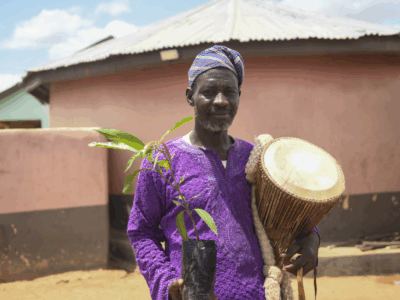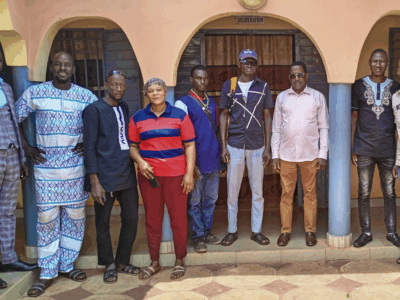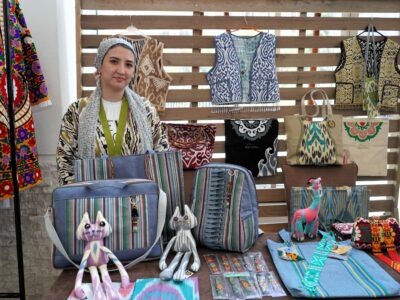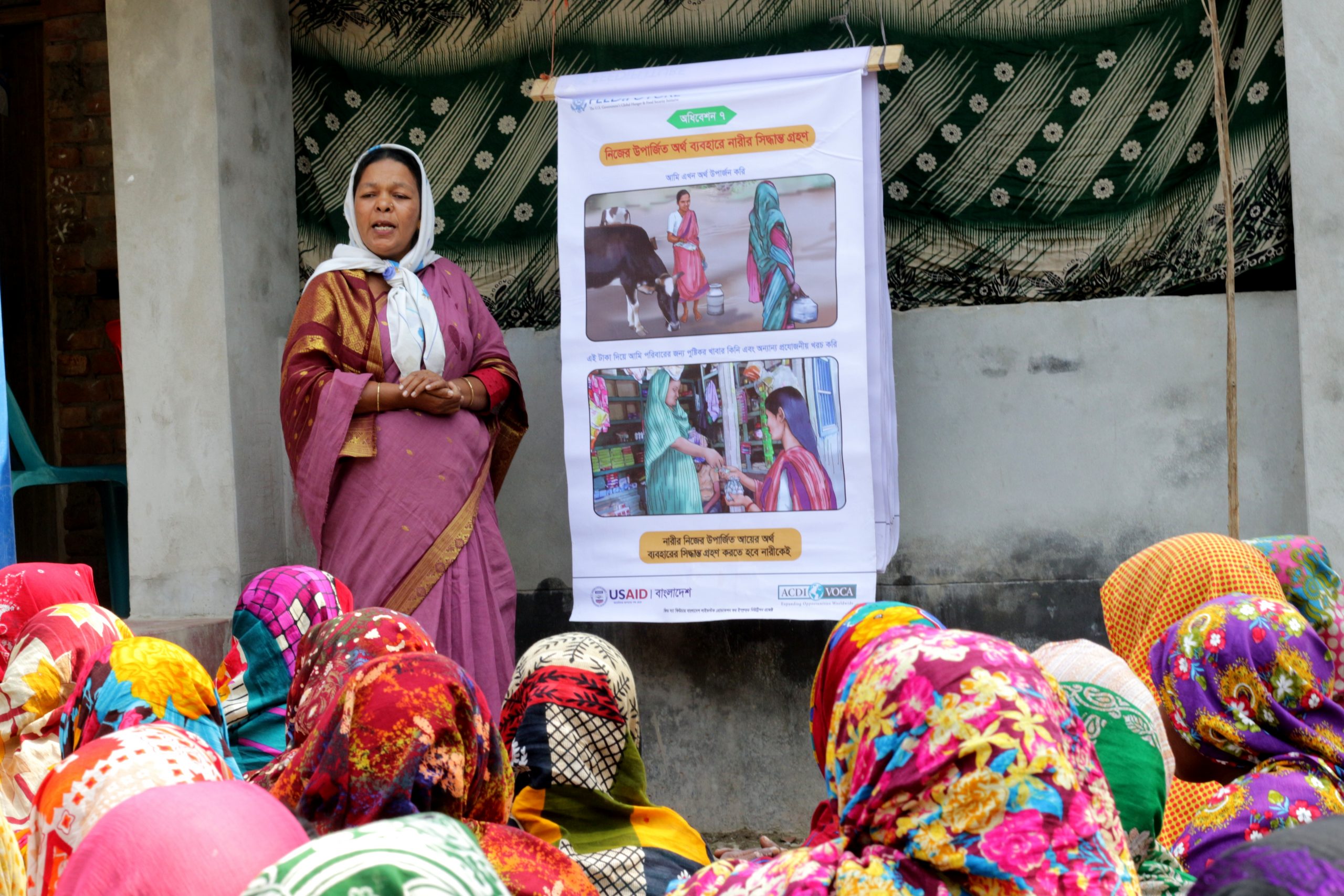
This International Women’s Day, on March 8, we envision a world where all genders are treated equally. Learn more below about how our programs work to break gender bias.
When a person is treated differently based on their real or perceived gender identity, gender bias exists. Recognizing this is an important first step to achieving equality, but it isn’t enough. Action is needed to level the playing field. When groups, such as women and girls, who have been systemically excluded gain access to resources and opportunities, economies expand, and women have the chance to thrive within them. ACDI/VOCA and our affiliate organization, Tanager, implement programs that confront gender bias, discrimination, and stereotyping, all with the goal of reaching transformative change that enables better lives through economic prosperity and social inclusion.
Breaking the Bias Against Women Controlling Finance
Ghanaian Women Access Savings and Loans
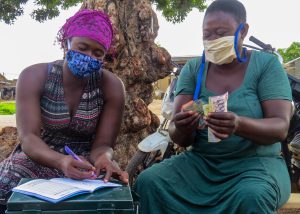
Around the world, women face challenges accessing finance because of bias and double standards in the financial industry. To address this issue, the Feed the Future Ghana Agricultural Development and Value Chain Enhancement II (ADVANCE II) Project, funded by USAID and implemented by ACDI/VOCA, helped create 1,122 village savings and loan associations (VSLAs), and by 2020, these groups were made up of more than half female members. VSLAs typically have 20 to 35 smallholder farmer members, who are unable to access financing on their own. As part of a VSLA, members contribute small amounts of their earnings to a pooled savings fund, which then provides loans for members. Creating these groups is one approach to overcoming the financial barriers women face and making the maize, rice, and soybean value chains in Ghana more inclusive as women grow their farming businesses. Read more about six ways female famers benefit from VSLAs.
Breaking the Bias Against Women in Leadership Roles
Promoting Health in Burkina Faso
Women in many parts of the world also struggle to achieve leadership roles because of gender stereotypes. The Victory Against Malnutrition Plus (ViMPlus) Activity, funded by USAID’s Bureau of Humanitarian Affairs and implemented by ACDI/VOCA and Save the Children, aims to improve the health, nutrition, hygiene, and sanitation of local Burkinabé families. With the goal of empowering women to be active proponents of health in their communities, ViMPlus has established community women’s support groups called GASPAs. These groups consist of 12 to 15 women of reproductive age who receive training and share knowledge with each other. “Mother leaders” are trained to manage the GASPAs, share best practices with other women, and encourage involvement in the groups. During the pandemic, the curriculum expanded to include identifying COVID-19 symptoms, taking protective measures, and obtaining care.
Breaking the Bias Against Women in Traditionally Male Jobs
Liberian Women Protect Biodiversity through Beekeeping
Women are often discriminated against professionally, despite their capacity to perform the same jobs as their male counterparts. In Liberia, the USAID-funded Forest Incomes for Environmental Sustainability (FIFES) Activity, implemented by ACDI/VOCA, supported education and training on more sustainable methods of harvesting honey. Women gained a better working environment in communities where beekeeping was traditionally done by men. The FIFES Activity installed beehives near towns so that beekeepers could harvest honey during the day. Participants used the improved techniques to increase their incomes and share what they learned with others. Changing their harvesting techniques allowed women to be more involved, thereby increasing their earnings and market access while promoting sustainability.
Breaking the Bias Against Female Entrepreneurs
Young Women Boost Communities in Northern Kenya
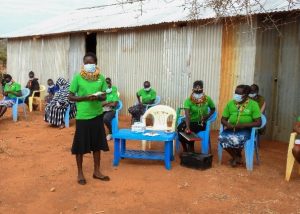
In Northern Kenya, where young women typically become mothers and handle household responsibilities, women face many biases that prevent them from becoming successful entrepreneurs. Mercy Corps’ Girls Improving Resilience through Livelihoods (GIRL) model is part of the USAID-funded Feed the Future Kenya Livestock Market Systems Activity, which is co-implemented by ACDI/VOCA, Mercy Corps, the BOMA Project, and Smart Regional Consultants. Through this model, young women engage in a nine-month safe space program. They learn life skills, literacy, and numeracy. They also learn about reproductive health, nutrition, financial literacy, and business, which enables them to become entrepreneurs. Being a part of a GIRL group encouraged some members to return to school, while others invested in small businesses, land ownership, largescale poultry farming, and largescale beadwork.
Breaking the Bias Against Women in Agriculture
Tanager Promotes Women’s Inclusion in India
Although women play a large role in agriculture worldwide, they sometimes have fewer earning opportunities due to bias. Tanager is a nonprofit affiliate organization of ACDI/VOCA working to help rural women in India build resilience, skills, and leadership. Through the Andhra Pradesh Farmers Market Readiness Project II (APFMRP II), funded by the Walmart Foundation, Tanager is creating gender inclusive Farmer Producer Organizations (FPOs) to ensure both male and female farmers benefit equally from marketing and crop aggregation. The project works with individual organizations to develop Gender Action Plans, which can be highly effective in increasing women’s participation and membership. To establish market linkages and make sure that women can participate in marketing activities, Tanager has established collection centers, which create improved outcomes for both farmers and buyers; farmers do not have to travel beyond their villages to sell their produce, and buyers can source bulk produce from a single location.
Taking Action for Equality
To #BreaktheBias of gender discrimination, everyone must work together at all levels. ACDI/VOCA, Tanager, and AV Ventures, a for-profit subsidiary of ACDI/VOCA, remain committed to advancing economic and social inclusion. When we all work together to empower women and girls with the knowledge and skills needed to challenge systemic inequality, we enable them to actively participate in international development, sustainability, economic growth, and other areas touched by our programs.

